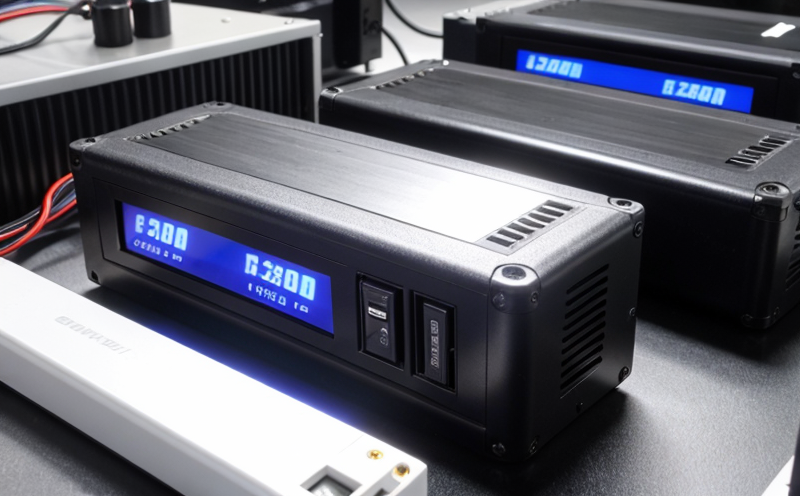EN 61951-2 Performance Testing of NiMH Rechargeable Batteries
In the realm of battery testing, EN 61951-2 is a critical standard for evaluating the performance characteristics of Nickel-Metal Hydride (NiMH) rechargeable batteries. This international standard ensures that the products meet stringent safety and performance criteria, which are essential in sectors such as automotive, consumer electronics, and medical devices.
NiMH batteries have been widely adopted due to their high energy density, long cycle life, and low self-discharge rate compared to other rechargeable cells like lead-acid or lithium-ion. However, ensuring these advantages are consistent across different manufacturers requires rigorous testing as per EN 61951-2.
The standard covers a range of tests aimed at assessing the performance parameters of NiMH batteries, including but not limited to:
- Initial capacity measurement
- Discharge rate testing under various conditions
- Charge retention tests after multiple cycles
- Temperature stability and thermal runaway resistance
- Electrolyte leakage checks
The first section of the EN 61951-2 test involves initial capacity measurement, which is crucial for ensuring that the battery delivers its rated performance. This is followed by discharge rate testing at different temperatures to simulate real-world usage scenarios. Charge retention tests are conducted after a set number of charge-discharge cycles to evaluate how well the battery retains its capacity over time.
The temperature stability and thermal runaway resistance tests are especially important given the potential hazards associated with high-temperature operation in automotive applications or portable devices. Lastly, electrolyte leakage checks ensure environmental safety by confirming that there is no hazardous liquid escaping from the battery during normal usage.
Applied Standards
| Standard Number | Description |
|---|---|
| EN 61951-2 | Apart from the core performance parameters mentioned earlier, EN 61951-2 also specifies additional tests such as electrical insulation resistance measurement and internal short circuit resistance checks. |
The standard ensures that all NiMH batteries undergo a comprehensive evaluation to guarantee safety and reliability. Compliance with these rigorous standards is vital for manufacturers aiming to produce high-quality products that meet regulatory requirements while also ensuring customer satisfaction.
Benefits
Compliance with EN 61951-2 offers numerous benefits, particularly in enhancing the reputation and marketability of your product. By adhering strictly to this standard:
- You ensure that your batteries meet international safety standards.
- Your products are more reliable and durable, leading to increased customer satisfaction.
- You can avoid costly recalls due to non-compliance or poor performance issues.
- It helps in maintaining a strong competitive edge by demonstrating commitment to quality.
In the automotive sector, for instance, where NiMH batteries are used extensively, meeting these standards is not just a regulatory requirement but also a key factor in securing contracts and gaining market share. Similarly, in consumer electronics, ensuring battery performance according to this standard can significantly impact user experience and brand loyalty.
Quality and Reliability Assurance
To ensure that the testing process adheres strictly to EN 61951-2, we employ state-of-the-art equipment and highly trained technicians. Our laboratory is equipped with:
- Advanced battery analyzers capable of measuring various performance parameters.
- Thermocouples for monitoring temperature during discharge rate tests.
- Electrochemical impedance spectroscopy (EIS) instruments to assess internal resistance.
- Automated systems for conducting multiple charge-discharge cycles accurately and consistently.
We follow strict protocols for specimen preparation, ensuring that each battery is tested under controlled conditions. This includes thorough cleaning of the batteries before testing, using appropriate solvents and procedures to avoid any contamination that could affect test results.
The data collected during these tests are meticulously recorded and analyzed by our experienced technical team. Our reports provide detailed insights into the performance characteristics of the NiMH batteries, highlighting any areas where improvements can be made. This ensures not only compliance with EN 61951-2 but also continuous quality improvement for your products.





